Alcohol ban and car parking charges proposed at Stonehenge solstice
- Published
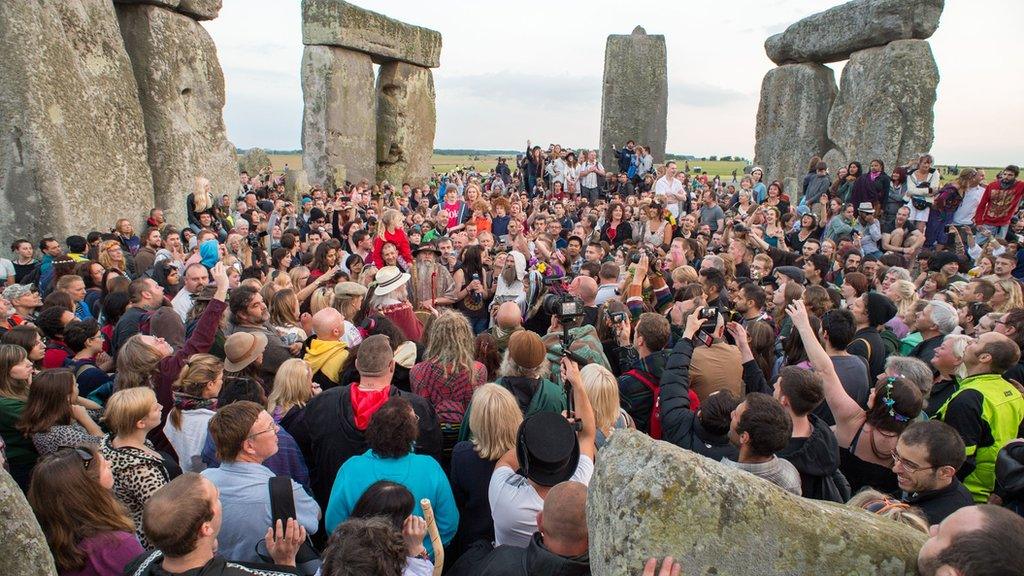
English Heritage wants to "reduce risk to the monument" by banning alcohol during the summer solstice celebrations
Revellers at Stonehenge could face a ban on alcohol and parking charges at this year's solstice celebrations.
English Heritage, which manages the ancient site, wants to introduce "significant changes" in response to "repeated and consistent" feedback.
Stonehenge manager Kate Davies, said an alcohol ban would "help everyone to have a better experience of solstice".
But senior druid, King Arthur Pendragon, said English Heritage was "looking for confrontation".
In December, large crowds gathered at the ancient monument in Wiltshire to watch the sunrise and mark the winter solstice.
And an estimated 23,000 people descended on the site to celebrate the summer solstice last June.
Despite it being illegal to damage the monument, last year the Heritage Journal wanted revellers banned from getting close to the stones in a bid to prevent the "annual vandalism".
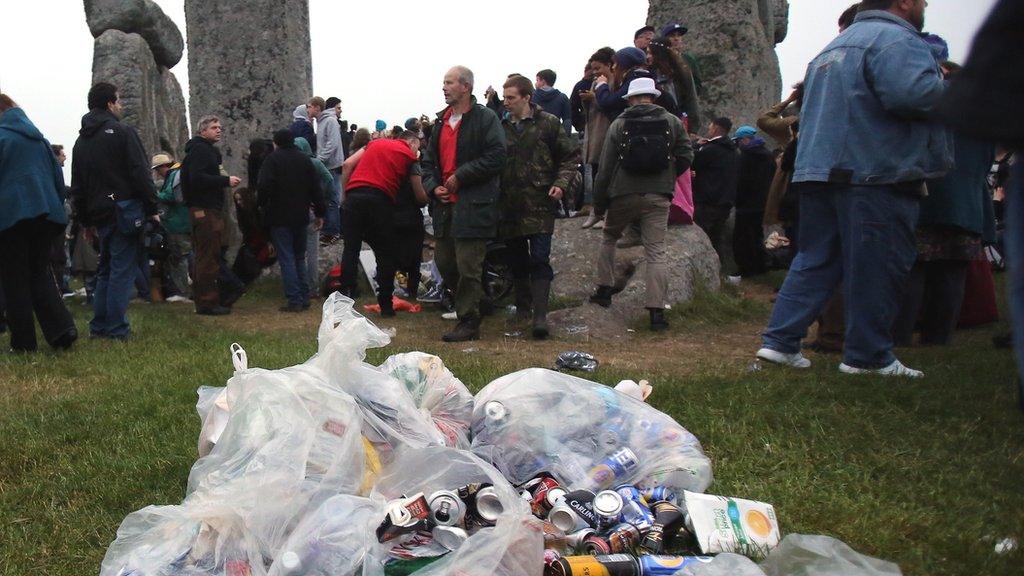
Senior druid King Arthur Pendragon said he will fight the "total ban on alcohol" as solstice was a celebration "not to be sanitized"
At the time, English Heritage claimed "deliberate damage" was "not characteristic of solstice celebrations" but now it wants to introduce changes "to reduce risk to the monument".
"Over the past few years, we have had lots of feedback from those attending the solstice celebrations, from families with young children to those for whom the stones holds a special spiritual significance," said Ms Davies.
"Having reflected on what they are telling us, we are now proposing two changes which will help us to better look after those attending and the monument itself."
'Sanitising the event'
Along with banning alcohol at Summer solstice, the organisation said it will also be "consulting with partners" on parking charges at both the winter and summer celebrations.
But Mr Pendragon said the charge was a "Pay to Pray policy" and he will fight the "total ban on alcohol".
"It's a celebration - not to be sanitized. It does not matter how they dress it up, we will not Pay to Pray," he said.
"This isn't just about money it's about sanitizing the event. How long before it's ticket only and book on-line like their [English Heritage] regular daily access?."
- Published22 December 2015
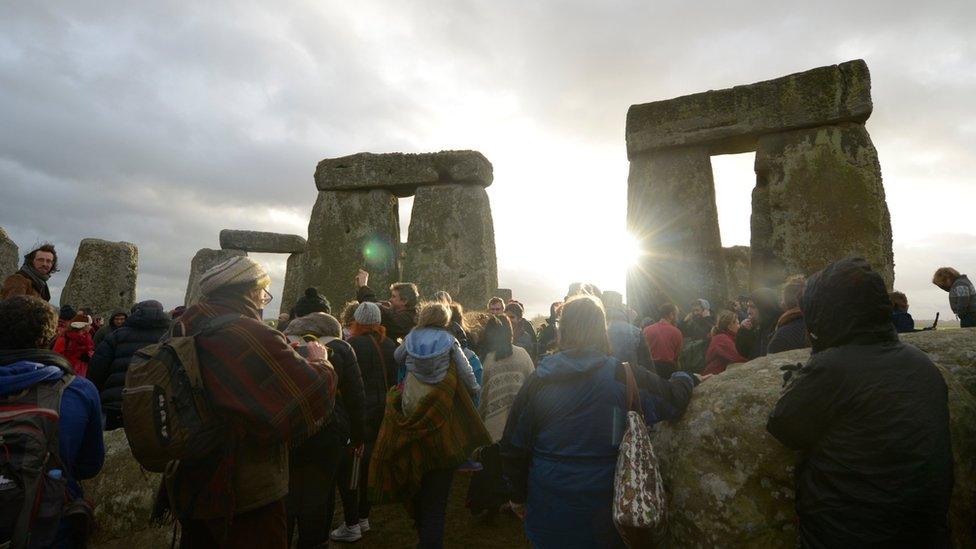
- Published21 June 2015
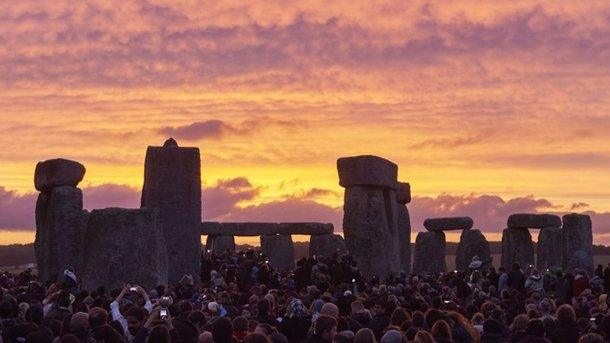
- Published5 March 2015
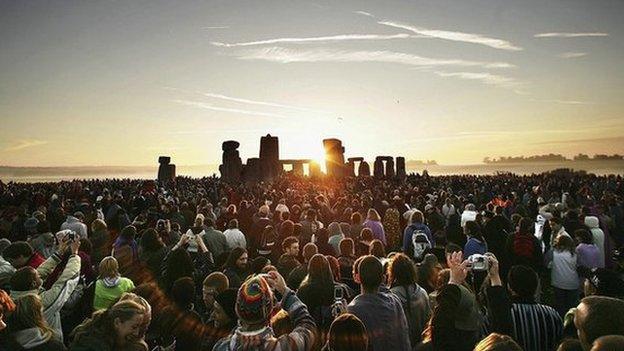
- Published25 February 2015

- Published20 June 2014
